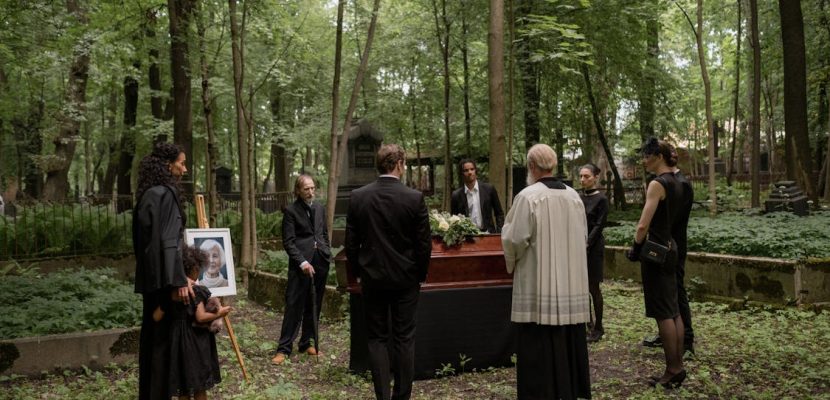For centuries, the color black has been synonymous with mourning and funerals in many cultures. But have you ever wondered why this dark hue is so closely associated with death and grief? This article delves into the history, cultural interpretations, and symbolism of wearing black to funerals, while also highlighting other funeral traditions around the world.
The Roots of Funeral Attire
The tradition of wearing black to funerals has deep roots, dating back to ancient times. In the West, this custom is believed to have begun with the Romans. When a family member passed away, the surviving relatives would wear a dark-colored toga, known as a toga pulla, as a sign of mourning.
This practice continued in medieval England, where it was customary for women to don black caps and veils following the death of their husbands. However, in other parts of Europe, such as Spain and France, the color white was often associated with mourning, particularly for widows.
The Evolution of Mourning Attire
The 19th century, particularly the Victorian era, saw significant changes in mourning traditions. A period of rigorous mourning was expected, particularly for women, who were required to wear black for up to four years following the death of their spouse. This period was split into two stages: full mourning and “half-mourning.”
During the initial stage of full mourning, a widow was expected to wear only black. However, as she transitioned into the half-mourning phase, typically a year after her spouse’s death, she was allowed to incorporate colors like purple and gray into her wardrobe.
This practice was initially limited to the upper classes, but as the middle class emerged during the Industrial Revolution, it began to permeate all levels of society. This led to a surge in demand for mourning attire, leading department stores like Lord & Taylor to establish dedicated mourning departments.
Mourning Customs in the United States
American funeral customs have largely mirrored those of the United Kingdom, including the tradition of black mourning attire. This practice was firmly entrenched in American culture by the late 1800s.
However, while the tradition of wearing black to funerals has persisted in Western cultures, it’s important to note that other cultures and religions have their own unique funeral customs and mourning colors.
Grief Expressed in Colors: A Global Perspective
A look at funeral traditions across different cultures reveals a rich tapestry of customs, each with its unique interpretation of death and mourning.
The Symbolism of White
The color white has often been associated with purity and innocence, making it a common color of mourning in many cultures. For instance, in Hinduism, white is the traditional color of mourning, symbolizing purity.
- In 1393, the funeral procession for King Leo V of Armenia, who died in exile in Paris, France, was dressed entirely in white.
- In 1962, former Queen Wilhelmina of the Netherlands, who believed that death marked the beginning of eternal life, was given a white funeral. This became a tradition for the Dutch royal family.
- Queen Fabiola of Belgium wore white to the funeral of her husband, King Baudouin I, in 1993.
Other Mourning Colors
Beyond black and white, other colors have also been associated with mourning across different cultures. For example, in Egypt, yellow is a traditional mourning color, linked to the sun and the gold used in mummification. In Ghana, red is commonly worn to funerals. The Catholic Church has also introduced the use of purple for mourning in many countries.
Interested in learning more about funeral planning or mourning etiquette? Visit our funeral and estate planning blog section.
In conclusion, while the tradition of wearing black to funerals is deeply rooted in many Western cultures, it’s only one among a myriad of mourning customs around the world. Whether it’s black, white, yellow, red, or purple, the colors we wear to funerals are a powerful expression of our grief, respect, and love for the departed.


Leave a Comment